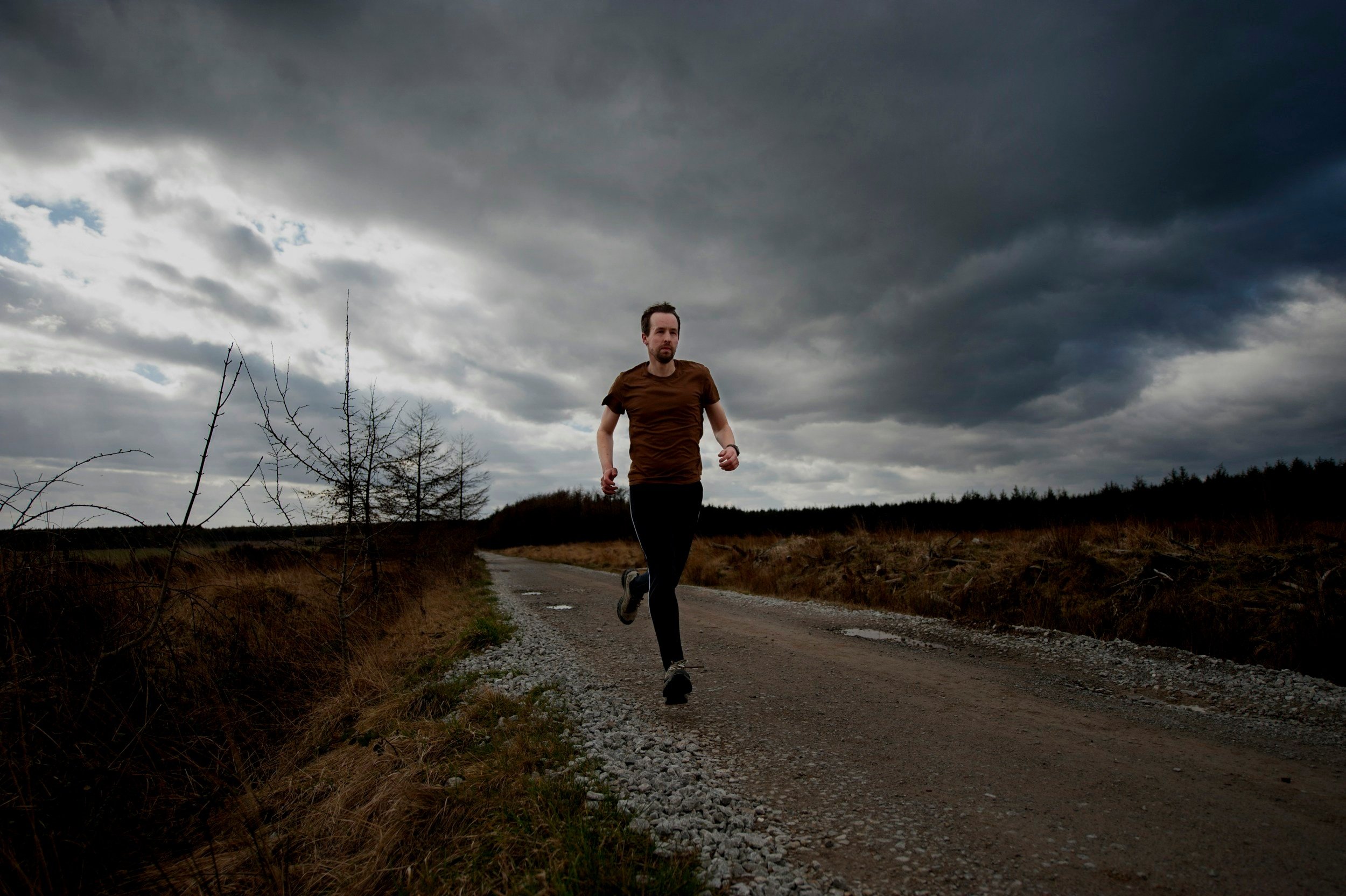
Running Injuries
Running Injuries Slowing You Down?
Whether you’re chasing a sub-3 marathon, building up from a couch-to-5K, or trying to stay injury-free while training for your next event — running injuries can derail your goals fast.
At Physio7, we help runners overcome pain, improve technique, and return to running stronger and smarter.
Chris Spurling, founder of Physio7, used to hate long-distance running. As a semi-pro footballer and triple jumper, he was powerful, but not built for endurance. Running more than a few minutes often triggered back pain and frustration.
Through a deep understanding of his body, focused mobility work, smart strength training, and patient progression, he transformed his running — eventually building up to ultramarathons and twice representing the UK in the Backyard Ultra.
That journey fuels his passion for helping other runners — especially those dealing with injury, inefficient technique, or recurring setbacks — find a smarter, stronger path forward.
Why We Understand Runners
Runner’s knee
Shin splints
Achilles tendinopathy
Plantar fasciitis
Calf or hamstring strains
IT band issues
Tib post and peroneal tendinopathies
Ankle sprains
Hip flexor strains
And more...
Common Injuries We Treat
How Do We Get Results?
Our in-depth assessment will help uncover:
What hurts — the specific tissues involved
Why it hurts — the biomechanical, training or postural drivers behind it
Treatment with our 3-Step System will help to:
Relieve
Ease pain with hands-on treatment, positions of ease, electrical therapy, and strategies to reduce inflammation and muscle tension.
Restore
Unlock stiff joints and tight muscles. Improve coordination and movement control during your running stride.
Rebuild
Rebuild strength, endurance, and confidence — so you can return to running smarter and stronger than before.
Questions Patients Often Ask About Running Injuries
-
In many cases, gentle, guided running is possible, but it depends on the type and severity of your injury. Your physiotherapist will assess your injury, identify movements that aggravate it, and advise on safe modifications or alternative exercises until you can return to full running.
-
Recovery time varies depending on the injury, your history and your goals. Some runners notice massive improvement after one session, while most require 2–6 sessions for meaningful progress. Complex or long-standing injuries may take longer, but your physiotherapist will monitor your progress and adjust your plan for safe, sustainable recovery.
-
Yes — we assess not just the injured tissue, but also your biomechanics, movement patterns, and training habits. In a standard assessment, we can address any immediate technique issues that may be contributing to your injury. For a more comprehensive evaluation of your running style, including underlying weaknesses, tight or stiff areas, and movement control, we recommend the Runner’s MOT (90 minutes). This session allows us to identify potential problem areas and give you targeted exercises to reduce injury risk and improve performance.
-
Absolutely. Whether you’re just starting out or training for an ultra marathon, we tailor our assessments and rehab plans to your level, goals, and running history. Beginners benefit from technique guidance, strength and mobility work, and gradual progression strategies, while competitive runners get targeted interventions to optimise performance, correct imbalances, and prevent recurring injuries.
-
No referral is required to book a running injury assessment. You can come directly to us. However, if you have severe pain or swelling, it may be appropriate to check with a GP first. Your physiotherapist can advise if further medical review is needed.
What to Book
If you already have an injury that makes it difficult to run comfortably, book in for a standard 40 minute assessment session (or 55 minute session if you have 2 or more injuries) so that we can get basic treatment under way. The ‘Runners MOT’ is an in-depth assessment that is best carried out when your symptoms are under control and you can run comfortably.
If you are injured but you can run comfortably, feel free to book either one of the assessment sessions (a standard 40 minute assessment session for one injury, or a 55 minute session if you have 2 or more injuries). Even better, book in for the Runners MOT (90 minutes). This will give us loads of time to fully assess the injury, the underlying problems and your running style, and to get treatment and rehabilitation under way.
If you do not have an injury, and simply want to reduce your chances of getting injured, book in for the Runners MOT (90 minutes). This will give us time to look at your running style and to identify any underlying weaknesses, stiff/ tight areas and movement control issues that could cause problems in the future. We will then get you started with exercises to address any potential problem areas.
For more information about our Runners MOT click here
Specialist Insight
Many running injuries can be classified as overuse injuries, resulting from repetitive stress on tissues such as muscles, tendons, or bones.
Rapidly increasing mileage, intensity, or frequency of runs without proper progression is a common factor in running injuries. To avoid getting hurt, it’s important to increase your running distance, speed, and how often you run gradually and in a way that makes sense for your body.
Adequate rest and recovery are integral components of a well-rounded running programme. If you push yourself too hard, too often, without taking enough breaks, you are more likely to get injured.
If you feel any pain or discomfort while running, don’t ignore it. Taking care of small problems right away is really important to stop them from getting worse. Pay attention to any pain, swelling, or changes in how you run, and make sure to get help if you need it.

